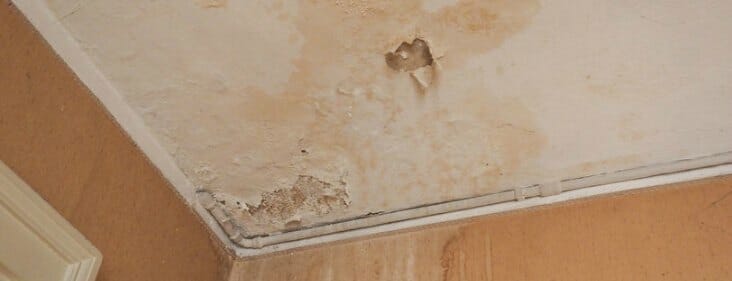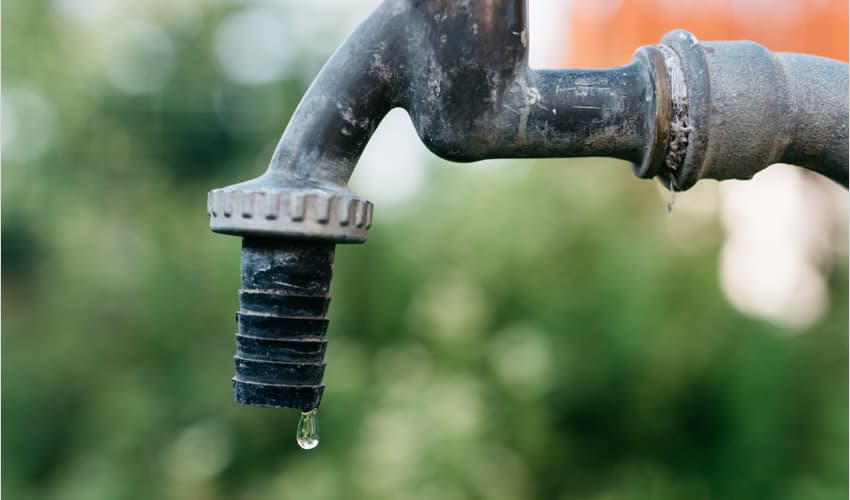Mastering the Six Most Common Water Leaks: Tips for Homeowners
Mastering the Six Most Common Water Leaks: Tips for Homeowners
Blog Article
Were you trying to locate facts on Most Common Causes of Leaky Pipes?

Leakages not only cause waste of water however can additionally trigger unnecessary damage to your home and advertise undesirable organic development. By comprehending and looking for daily situations that trigger leakages, you can safeguard your residence from future leaks and unneeded damage.
Intruding origins
A lot of water leaks begin outside the home rather than inside it. You may observe damp spots or sinkholes in your lawn, and that may suggest that tree origins are invading water lines triggering water to leak out.
Rusty water supply
As time goes by, your plumbing system ages and also corrosion such as rust may start gnawing the pipelines. This may be the root cause of staining or bending on your water pipes. This calls for an assessment with your plumber quickly. Consider replacing the pipes since they are at a higher risk of corrosion than the newer versions if our plumbing system is old.
Defective Pipeline Joints
The point at which your pipes link is often the weakest link in the waterline. Pipe joints can weaken gradually, causing water leakages. Regrettably, the majority of pipe joints are not easily visible. If you have loud pipes that make ticking or banging noises, especially when the warm water is activated, your pipe joints are possibly under a great deal of stress. It is recommended to have your plumber examine your system once a year.
Instant temperature level adjustments.
Extreme temperature adjustments in our pipelines can trigger them to increase as well as acquire unexpectedly. This expansion and also tightening may cause splits in the pipes, especially if the temperature are below freezing. If you kept an eye on how your plumbing functions, it would be best. The presence of the formerly mentioned conditions frequently indicates a high risk.
Poor Water Connectors
Sometimes, a leak can be caused by loosened hose pipes and also pipelines that provide your home appliances. More often than not, moving is what causes the loosened water Connections. You may find when it comes to a washing machine, a pipe might spring a leak as a result of trembling throughout the spin cycle. In case of a water connections leak, you might notice water running directly from the supply line or pools around your appliances.
Blocked Drains
Obstructed drains pipes might be irritating as well as inconveniencing, yet they can sometimes end up triggering an overflow bring about burst pipes. Maintain removing any type of products that might drop your drains that could block them to avoid such troubles.
All the above are sources of leaks but not all water leaks result from plumbing leaks; some leaks could come from roofing system leaks. All leaks must be fixed quickly to stay clear of water damage.
Leaks not only trigger waste of water but can also create unneeded damages to your home and promote unwanted organic growth. By looking and also recognizing for daily situations that cause leakages, you can secure your house from future leakages as well as unnecessary damage. Today, we will look at six leak creates that might be creating your pipelines to trickle.
At times, a leakage can be triggered by loose hose pipes and also pipelines that provide your home appliances. In situation of a water connections leak, you may notice water running directly from the supply line or puddles around your appliances.
How To Check For Water Leak In Your Home
How To Check for Leaks
The average household's leaks can account for nearly 10,000 gallons of water wasted every year and ten percent of homes have leaks that waste 90 gallons or more per day. Common types of leaks found in the home are worn toilet flappers, dripping faucets, and other leaking valves. These types of leaks are often easy to fix, requiring only a few tools and hardware that can pay for themselves in water savings. Fixing easily corrected household water leaks can save homeowners about 10 percent on their water bills.
To check for leaks in your home, you first need to determine whether you're wasting water and then identify the source of the leak. Here are some tips for finding leaks:
Take a look at your water usage during a colder month, such as January or February. If a family of four exceeds 12,000 gallons per month, there are serious leaks.
Check your water meter before and after a two-hour period when no water is being used. If the meter changes at all, you probably have a leak.
Identify toilet leaks by placing a drop of food coloring in the toilet tank. If any color shows up in the bowl after 10 minutes, you have a leak. (Be sure to flush immediately after the experiment to avoid staining the tank.)
Examine faucet gaskets and pipe fittings for any water on the outside of the pipe to check for surface leaks.
Undetected water leaks can happen without the home or business owner even realizing. If you suspect a water leak, but not able to find the source. It is time to contact a professional water leak detection service, The Leak Doctor.
How To Find a Water Leak In Your Home
https://www.leakdoctor.com/blog/How-To-Check-For-Water-Leak-In-Your-Home_AE197.html

Do you appreciate more info about How to Find Water Leaks? Place a remark further down. We would be delighted to see your views about this post. In hopes to see you back again in the future. For those who liked our page please make sure you remember to pass it around. Bless you for your time. Don't hesitate to stop by our website back soon.
Explore Now Report this page